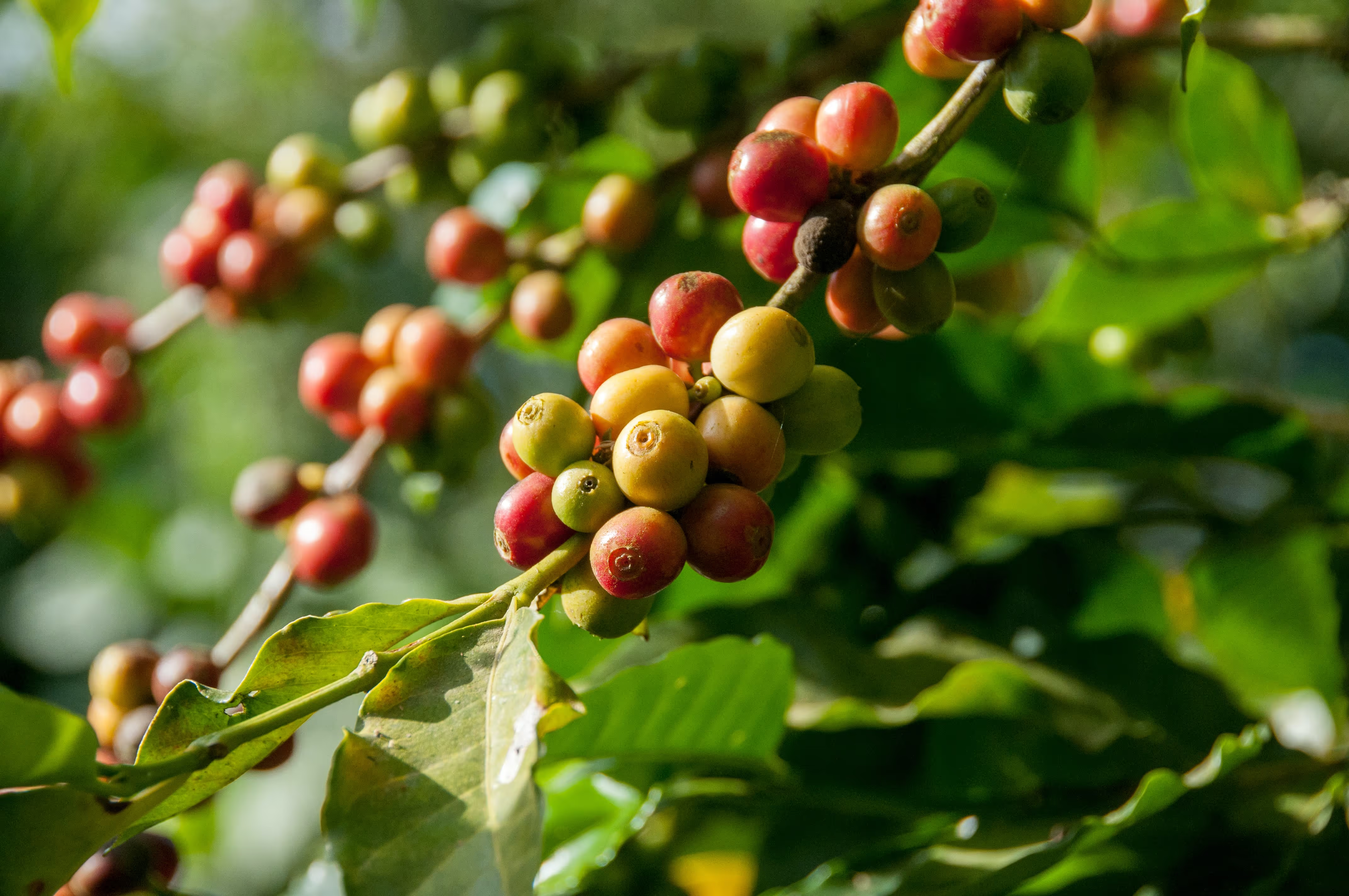Equitable, Net Zero & Nature Positive Finance
Accelerating private investment in sustainable land use
UNEP Climate Finance Unit's Impact Report 2023

Driving meaningful change and advancing solutions for climate, nature and people
Established in 2019 within UNEP's Ecosystems Division, the Climate Finance Unit (CFU) has
emerged as an innovation lab by catalyzing private finance and investment towards restoration,
sustainable agriculture and forestry in developing countries that goes beyond “business as
usual” by generating verifiable nature, climate and livelihood impact. As part of a reorganization,
CFU transferred to the Climate Change Division in the first quarter of 2024.
The team is geared towards developing ‘practical’ catalytic facilities, business incubators,
training and knowledge management products that can be used by governments, investors,
banks and agri-food companies to reduce emissions, create nature-positive impact, improved
resilience against climatic extremes and improved conditions for rural communities.
The data-driven approach focuses on collecting and analyzing relevant data, prioritizing
successful "proof of concept"; initiatives with a focus on generating positive environmental and social (E&S) impact, as well as reaching scalability and replicability. We also work with civil
society and private sector partners as implementing partners for part of our work,
identifying for each of our activities were our own added value lies and where we need to
partner with others.
By unlocking private capital, stimulating business development and providing recommendations
through normative work, we aim to support UN Member States to advance on the targets in the Rio Conventions related to tackling the climate, land degradation and biodiversity crises.
Our transformative journey highlights our dedication to driving meaningful change and
advancing solutions for climate, nature and people. Where we have made impacts:
Demand Side - Unlocking Private Finance
We believe that without lowering the costs and risks for investors, banks and agri-food
companies - and in the absence of more favorable economic and regulatory frameworks - it will
be difficult to transition to more sustainable land use practices and in general move towards
sustainable food systems in line with climate, nature, restoration and SDG targets. From a
demand side perspective we are therefore focused on creating practical, catalytic facilities that
are tailored to impact investors, development banks, microfinance institutions and commercial
banks that want to finance their clients in a different way, but which need some form of ‘de-
risking’ or credit enhancement to close deals. ‘Demonstrating proof of concept’ in our view is
important to showcase to sector peers as well as governments that change is possible and positive impact can be generated. It will then be up to governments to create more favorable economic and financial conditions and for sector peers to follow suit to create scale and ultimately make financing sustainable land use mainstream.
By leveraging the power of catalytic facilities such as the AGRI3 Fund, the Responsible
Commodities Facility (in Brazil), the Restoration Seed Capital Facility, the Tropical Landscapes
Grant Fund (in Indonesia) and &Green Fund, the Climate Finance Unit through these partners
mobilized over USD 174 million in capital for sustainable land use in 2023 through eleven transactions investing in sustainable land use projects in Latin America, Asia, and Africa.
The CFU-supported projects contributed to the positive impact in 2023:
| Livelihoods | Number of jobs created | 2,250 | #jobs |
| Number of women empowered | 8,850 | #people | |
| Sustainable production | Agricultural area covered by sustainable production techniques | 111,638 | ha |
| Climate Action | GHG sequestered through restoration of native vegetation | 3,165,000 | tonnes |
| Number of people whose resilience has been improved as a result of project activities | 6,300 | #people | |
| Biodiveristy | Area of avoided conversion of natural ecosystems | 54,400 | ha |
| Forest | Area under management for forest restoration | 7,302 | ha |
In 2023, the AGRI3 Fund reached a significant milestone, closing its first deal in Africa with
the Old Mutual Investment Group Malawi to support the expansion of macadamia nut production in a sustainable and responsible manner. With the first deals successfully financed by Rabobank, Oikocredit, and Old Mutual Investment Group Malawi, and more financial institutions in the pipeline, AGRI3 is well on track to achieve its goal of leveraging USD 1 billion in debt towards farmers and businesses that promote positive environmental, climate, and livelihood impacts. AGRI3 has also created a standardized loan product called Renova Pasto to make financing more accessible to smallholder farmers and businesses. This standardized approach is expected to play a crucial role in accelerating the uptake of sustainable agricultural practices in developing countries.
The Restoration Seed Capital Facility (RSCF) achieved significant milestones in 2023 by
providing substantial support to sustainable land use and restoration initiatives. RSCF provided
project development support to Ecotierra's Urapi Sustainable Land Use Fund, which has
successfully closed an investment of USD 9.2 million. RSCF also supports the Amazon
Biodiversity Fund (ABF), which has reached BRL 234 million in committed capital. Additionally,
RSCF organized a Regional Knowledge Exchange event in Brazil in October 2023 that brought
together 60 fund managers, investors, and project developers to network, exchange knowledge,
and share lessons learnt on establishing new restoration-focused funds, developing investment
pipelines, and scaling up sustainable land investments in Latin America.
Supply Side - Supporting SMEs in Market Development
There is often talk about there being enough capital in the world that wants to create positive
impact, but the projects are lacking to absorb this capital. While this general notion needs to be
taken with a pinch of salt, given that many (impact) investors or even development finance
institutions have high return expectations from truly sustainable projects, it is true that there is
generally a lot of support needed to businesses - especially SMEs - that want to change
practices to be more nature, climate and people positive, but who may struggle to make their
financial model sustainable, find buyers or off takers for their products and investors to provide
capital for capex and opex requirements.
From the ‘supply side’ perspective UNEP’s Climate Finance Unit (CFU) has therefore created a
number of business incubators to support ‘pipeline development. To establish a thriving market
for restoration and foster ecopreneurship globally, the Restoration Factory and Restoration
Explorer are strategically deployed across multiple countries. These initiatives offer
comprehensive support for entrepreneurs, guiding them through the specific business
development processes from ideation to growth stages. Ultimately, the underlying idea is that a
value chain approach needs to be applied, whereby SMEs are being supported through a suite of
positive interventions (including ideation, growth stage, access to markets and access to
finance) to move from promising early-stage business ideas to commercially viable enterprises.
By nurturing ecopreneurs and fostering a pipeline of investment-ready restoration enterprises,
these initiatives aim to validate scalable and replicable models for promoting businesses
centered around restoration. The successful rollout of the Restoration Factory in Kenya saw the
support of 47 entrepreneurs and SMEs through 48 mentors. Furthermore, the pilot of the
Restoration Explorer in Kenya engaged 60 restoration-focused entrepreneurs, trainers, and
NGOs, providing additional evidence of the effectiveness of these programs in driving positive
ecological and economic impact.
The Restoration Explorer, launched in March 2023, aims to provide nature-conscious entrepreneurs with a user-friendly tool to discover sustainable business ideas aligned with their goals and quickly assess their business readiness. This Explorer combines an online decision support tool with a training curriculum delivered through in-person workshops, supported by local enterprise organizations. Currently, the Explorer is being piloted in Burkina Faso and Niger as part of the Great Green Wall Flagship of the UN Decade on Ecosystem Restoration, in collaboration with the FAO.
The Restoration Factory implemented two sector-specific incubation programs in Thailand and
Vietnam. Additionally, the Restoration Factory will be rolled out in the Brazilian Amazon, with 52
entrepreneurs successfully onboarded. Looking ahead to 2024, we plan to roll out additional
incubation programs in Tanzania, Brazil, the Democratic Republic of Congo (DRC), and Rwanda.
These expansions will significantly amplify the reach and impact of these initiatives in
promoting ecosystem restoration and fostering ecopreneurship worldwide.
The Tropical Landscapes Grant Facility (TLGF) is a grant-making initiative helping sustainable
land use Indonesia’s ventures to leverage their bankability for private sector financing through
advancement of their works on nature-based solution initiatives and gender equality promotion.
As of 2023, TLGF has significant milestones by successfully selected 7 grantees out of 8
targeted throughout its period, with 17 ventures are still in the pipelines with diversified
sustainable commodity supply chain ranging from coffee, bamboo, rattan, pine rosin, coconut
sugar, and kenari nut and others. The TLGF marked the importance of blended finance needs to
leverage transformational change in the land-use sector in Indonesia requires nurturing efforts
for a broaden gender lens investing to present an untapped opportunity.
High Ambition Coalitions
Since its inception at COP26 in Glasgow in 2021, the Innovative Finance for the Amazon,
Cerrado, and Chaco (IFACC) initiative has made significant strides towards its ambitious goal of
mobilizing $1 billion in investments by 2025 and USD 10 billion by 2030 for sustainable production
of soy, beef, non-timber forest products (NTFPs), and agroforestry in Brazil, Paraguay, and
Argentina. The initiative has more than doubled its number of signatories from eight to sixteen, securing a remarkable USD 4.6 billion in commitments and supporting the disbursement of over USD 220 million through eleven financial products. These investments have directly contributed to the
restoration of over 250,000 hectares of native vegetation and the improvement of over 200,000
hectares of productive land, demonstrating the positive impact of sustainable practices on
environmental conservation and agricultural productivity.

Global & Normative Initiatives
The State of Finance for Nature (SFN) report is an annual report that tracks global financial
flows—both positive and negative—to Nature-based Solutions (NbS) and estimates the investment
needed to limit global warming to below 1.5°C, halt biodiversity loss and achieve land degradation
neutrality. It will be produced until 2030 to support the decade of action. Each year, the SFN includes
a new focus. The 2023 edition provided, for the first time, insight into private financial flows that
have direct negative impacts on nature. With this addition, SFN 2023 provided a comprehensive
overview of public and private financial flows into NbS, in the broader economic context of public
and private nature-negative and -positive financial flows.
The team provides expertise on risk management and Environmental & Social (E&S) impacts for every devised transaction. The goal is to contribute to standardizing positive impacts through the Land Use Impact Hub KPIs (updated in summer 2023), training packages and knowledge management support material.
The E&S team is also regularly consulted on risks and impacts specific to land use finance, and
provide guidance to external parties when needed. For instance, it sits as expert to contribute to
raising the integrity level of new asset classes such as bio-credits (through the Biodiversity Credit Alliance, the IAPB) and of international reporting/disclosure frameworks (for corporates,
financial institutions, and SMEs).
All these learnings are disseminated to the ESKEN group that has grown in 2023 from 200
people to more than 1000 professionals keen to learn on risks and impacts of land use finance,
as well as DFIs, MDBs, and corporate E&S working groups.
In 2023, the E&S work produced 3 webinars, 2 close doors discussions, 1 in-person event. It has
developed and disseminated 3 briefing notes, 2 case studies and updated its short list of KPIs.
All in all, feedback from the community of practice is highly positive with a satisfaction rate at
8/10 (as per the post event surveys).




